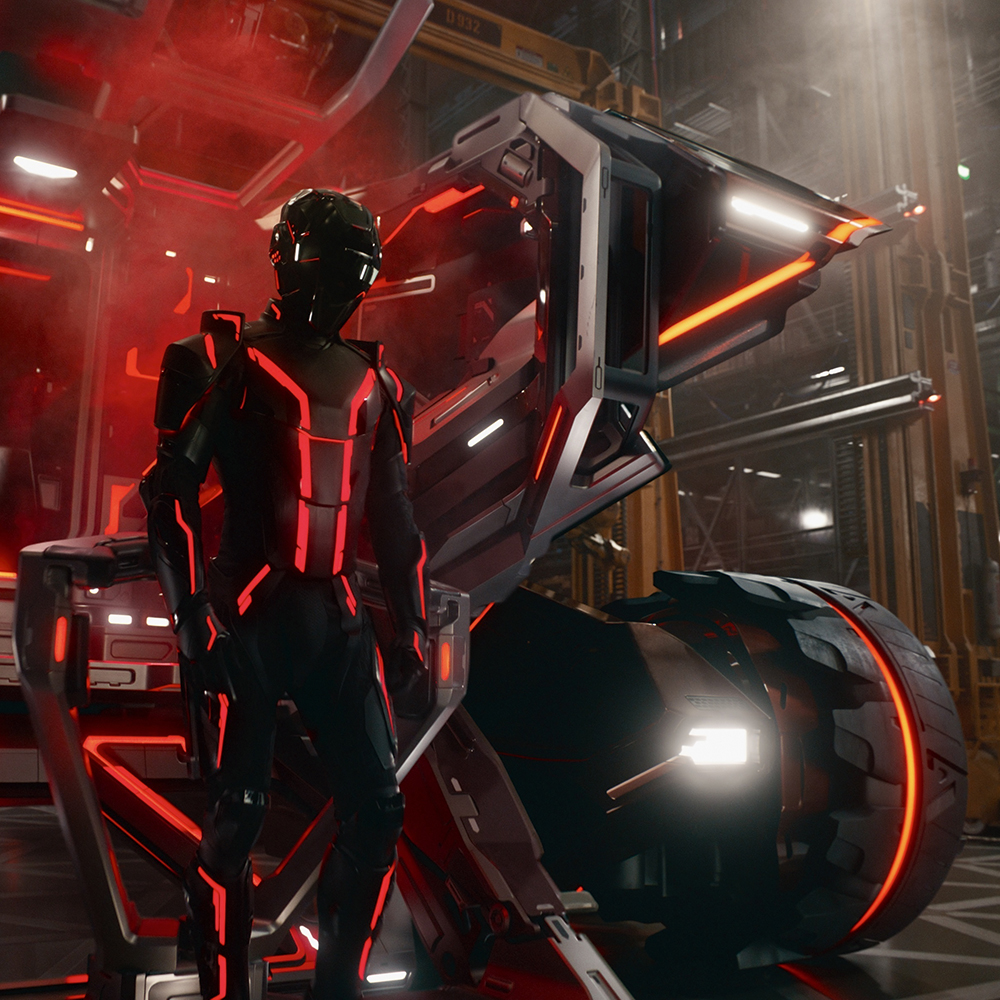Sitting in the nearly empty movie theater at which I saw Tron: Ares, I found myself swamped by neon. Its hues are unappealing in real life – redolent of dive bars, arcades and other unsavory venues – but neon is downright unbearable when experienced in a movie theater, where you have no choice but to stare at the screen unless you want a perfectly good $21.51 to go to waste.
As a rule, the Tron films – this is the third, following the somewhat inventive original film from 1982 and the delinquent sequel from 2010 – are ugly in the same way the videogame Pong, the A-ha music video “Take On Me” or Keanu Reeves’s “virtual reality” thriller Johnny Mnemonic are ugly: they substitute for actual humanity a simulacrum of the same, and the simulacrum is often clunky, choppy and weird. Of course, having been produced with a high budget in 2025, Tron: Ares is smooth as silk. But its technical proficiency makes it even less inviting than its antecedents. The more effectively movie producers imagine a scenario in which humanoid computer programs fight within computer worlds (the gambit of Tron and its progeny), the more off-putting the product is likely to be.
The plot here is likely to be comprehensible only to those familiar with the previous entries which, given their irregular timing as well as the general lack of Tron-ness in popular culture, fail to meet the definition of a cult. The lead character in the new movie is a computer program called Ares (Jared Leto). A programmer manages to bring the digital construct into the non-computer world for brief stretches of time. Ares perceives the world through RoboCop-like vision, speaks with a soft, empathetic voice and sports facial hair that would invite the condemnation of Secretary of War Pete Hegseth. That Ares is sensitive, inquisitive, and played by the star of Dallas Buyers Club suggests that he may not be content to remain ensconced inside a computer forever. But the forces of Dillinger Systems want to bring him to terra firma primarily to fight wars on the evil company’s behalf.
This is about to get a lot more boring. Here we must attend to the corporate rivalry between Dillinger Systems and ENCOM. Not since Super Nintendo dueled with Sega Genesis for the attention of adolescents everywhere have the video-game wars raged so brutally. The quest to make Ares permanently available in the real world sets Dillinger CEO Julian Dillinger (Evan Peters) against ENCOM CEO Eve Kim (Greta Lee). What commences is a conflict of hacking and coding that quickly becomes wearisome, but at least these characters are flesh and blood with flesh-and-blood motivations.
That’s more than you can say for Ares who, even when liberated into the material world, is an entirely uninvolving “character.” HAL 9000, the disembodied computer from Stanley Kubrick’s 2001: A Space Odyssey, was written more engagingly, though Tron: Ares surely has that film beat as for the number of chases and explosions.
Director Joachim Rønning will never be mistaken for a master of subtlety. One potentially interesting thread involves Dillinger’s depositing Eve into the digital realm, where he attempts to wrest the sought-after code from her brain. Predictably, Ares and Eve develop puppy dog-like feelings for one another. “Being human is hard,” Eve says to Ares, though much of the dialogue is often barely intelligible under the barrage of sound effects and music by Nine Inch Nails (which, at various points, caused the seats in my theater to rumble, presumably on purpose).
That I have semi-coherently recounted the plot of this distressingly long two-hour mess is something of a miracle, though I will admit I perked up when the inaugural star of Tron, Jeff Bridges, logged an appearance at the eleventh hour.
Alas, Bridges’s performance does not suggest a continuation of his actual role as much as a bizarre homage to Marlon Brando’s performance as Jor-El in Superman (as has apparently been noted across the internet, they are wearing virtually the same white costume) and, inevitably, the Dude. “Classic humor, man,” Bridges says to Ares with appreciation after the latter tells a joke of some sort. The real joke is the film’s conclusion, in which Ares, at last liberated, is seen living out of the country and with his hair grown out.
I was dazed and confused by all the neon in Tron: Ares. However, the lasting damage was not done to my eyes – but to my remaining brain cells.
This article was originally published in The Spectator’s November 10, 2025 World edition.























Leave a Reply